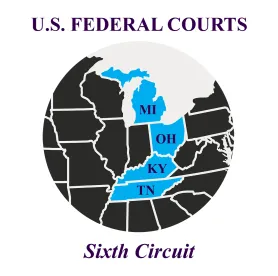In our previous post, we discussed the difficulties of succeeding with a Section 1292(b) petition in both the district court in the circuit court. We also noted that while the Sixth Circuit’s rate of acceptance of orders already certified by district courts has been higher than average for federal circuit courts. We then reviewed decision from the past few years, and found that the Sixth Circuit has recently been accepting for appeal about 90% of orders certified under §1292(b). This post describes why we think this is happening.
Reviewing recent decisions, we believe the underlying reason for this change is that many panels of the Sixth Circuit are now holding that the traditional three-factor test, which is based on the statutory language, should be treated “as guiding criteria rather than jurisdictional requisites.” In re Trump, 874 F.3d 948, 951 (6th Cir. 2017) (adding italics while quoting 16 Wright & Miller, Federal Practice and Procedure §3930 (3d ed. 2002). In short, the traditional three factor asked if the order presented an unsettled question of law the resolution of which would advance the litigation. Adopting the approach explained by Wright & Miller, the circuit has begun explicitly considering “prudential” factors that were previously implicit, understated, or even sometimes ignored. And because the district courts tend to place more importance on the practicalities of §1292(b) certification, recent Sixth Circuit decisions appear to be deferring to the lower court more often on whether accepting the appeal would materially advance the litigation.
Having both appellate and trial courts in agreement on interlocutory appeals is an unqualified good for both courts and litigants. Circuit courts should generally defer to the lower courts, who have the best perspective on whether an immediate appeal would be efficient for the litigation, just as they defer to trial courts on all kinds of case management issues. Appellate courts can instead focus on whether the issue is actually an undecided legal issue, and then resolve the issue. Whether the court of appeals ultimately agrees with the lower court on the merits of the issues is less important, from a systemic perspective, than whether they agree on which kinds of issues should be subject to a 1292(b) appeal.




 />i
/>i

